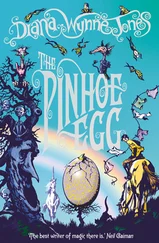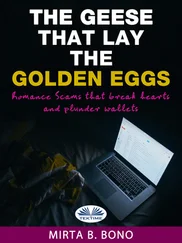has you.’
After she said this, Griffoni bent down to do something with her shoe, something Brunetti knew to be entirely unnecessary. He marvelled at the grace of women and at their charity.
When she sat up, she asked, ‘Why don’t we do it?’ she asked.
‘What?’
‘Why don’t we do it, the two of us? Go over there and ask people – in shops, in bars – about Signora Cavanella and her son. You can be the good cop and I can be the bad cop, if you like.’
‘You know about the case?’
‘I’ve read everything you’ve read: Rizzardi’s report and the report from the ambulance squad that answered the original call, and yours about missing documents.’
She paused, then added, ‘I’ve asked Signorina Elettra if there are any other documents.’
Brunetti didn’t touch this. Instead, he said, ‘I spoke to Davide’s doctor. Well, to his mother’s doctor, who treated him twice.’ He folded his hands by interlacing the fingers and tapped on his desk a few times. ‘But there was no sign of a medical record.’
‘I don’t want to say that’s impossible,’ she began, ‘but it’s hard to believe. There’s got to be some sign of him. Somewhere.’
‘There isn’t,’ Brunetti said, thinking of the drawings in the doctor’s office but not considering them part of the official record.
‘Then what do we do?’ she asked.
‘We play good cop and bad cop and go and talk to people and see if we can find some gossip.’
21
As Foa took them over to San Polo, Brunetti told her about his conversation with the women in the dry cleaner’s, his meeting with Ana Cavanella, and the apparent ease with which Pucetti had befriended her.
The wind had driven them into the cabin and they sat side by side on the back cushion, hands braced against the occasional thrust of the waves. ‘He’s a clever boy,’ Griffoni said with a smile of approval. The noun sounded strange coming as it did from lips that could not be a decade older than the ‘boy’s’. As they passed San Giorgio, she turned to Brunetti and asked, in an entirely normal voice, ‘Do you ever get tired of all this beauty?’
His gaze passed beyond her to the clouds scuttling behind the dome. ‘Never.’ The answer was automatic, unconsidered, true.
‘I feel that way about Naples,’ she said. Before he could react and perhaps reluctant to return to the subject, she asked, ‘Have you met Pucetti’s fiancée?’
‘The Russian girl,’ Brunetti answered. Then, to show that, although she might see him as just another man without interest in people’s feelings, he still took the trouble to learn some things about them, added, ‘She’s a mathematician.’
‘She was on the fast track to becoming a full professor in Moscow, and now she’s teaching algebra to teenagers in Quarto d’Altino,’ Griffoni said and gave the sort of shrug with which Neapolitans acknowledge the truth that life tosses us around like bags of potatoes at the market. Then, too casually, she said, ‘I’ve had a look at her pension.’
‘Whose?’
‘Ana Cavanella’s,’ Griffoni answered. ‘She worked for the Lembo family from the time she was fifteen until she was seventeen.’
Brunetti wondered where she had found that information but did not ask. Instead, he inquired, ‘And then?’
‘Then there’s a gap when she did not work – at least she did not declare an income – for twelve years. And then she worked for a cleaning company until she retired two years ago.’
‘Cleaning what?’
‘Offices and shops. The company’s in Mestre, but they do a lot of work here. She was legally employed: taxes, health contributions, pension.’
Brunetti saw that she had something else. ‘Tell me,’ he said. The boat rose up without warning and slapped down with a heavy thump, shaking them both. Brunetti pulled back the curtain and saw that wind was playing on the water, slashing at the white tops of the waves. There was another, lesser, thump and then things quietened down.
‘I read about the Lembo family,’ she said.
‘What?’
‘What was available online,’ she began, then paused.
‘And?’
‘And I called some friends and asked about them.’
‘Friends where?’
‘Here. And in Rome.’
‘What did you learn?’
‘Probably no more than you did. A few people said the mother got what she deserved, but no one explained what they meant. Drugs, sex, and rock and roll for the oldest daughter.’
‘Lucrezia,’ Brunetti supplied.
She nodded and said, ‘There’s much less about the next one, Lavinia. It seems she’s in Ireland.’
Brunetti nodded, then asked, ‘You know that one of them died?’ he asked.
‘Yes. The baby.’ She spoke the word in quotes. ‘In Chile. In a swimming pool.’
‘Strange place to die,’ he said neutrally.
‘If you’re the one dying, any place must be strange.’
He made an assenting noise.
‘What did you find out about Lavinia?’ he asked, surprised by his own easy reference to this unknown woman.
‘Only official things. School, university, jobs.’
‘You can get into those files?’ he blurted out, wondering where she could have learned to do that. Surely not from Signorina Elettra.
‘Vianello checked for me,’ she said. Then, tossing away the line, she added, ‘He asked Signorina Elettra for some help with Ireland.’
The motion of the boat softened. He looked out again and saw that they had turned into Rio San Polo, where the wind effectively ceased. Foa pulled up to Campiello Sant’Agostin, slipped the engine into neutral, and jumped up on to the riva to moor the boat. Brunetti stepped up beside him, reached back and took Griffoni’s hand to help her up. ‘I don’t know how long we’ll be,’ he told Foa. ‘You might as well go back.’
‘Do you mind if I stay, Commissario?’ the pilot asked, looking, Brunetti thought, uncomfortable. ‘My aunt lives over here, and I never come to see her much any more. So I thought that, being as I’m here . . .’ The pilot’s voice trailed off. Brunetti glanced at Griffoni, who shrugged and looked at the pavement: this was not her decision.
‘How long has your aunt lived here?’ Brunetti asked.
‘For ever.’
‘Ask her about Ana Cavanella, then, would you?’ Brunetti said.
‘Sure thing, Commissario,’ Foa said, jumped back into the boat to retrieve the keys, then vaulted back on to the riva .
The two commissari took the bridge and started down towards Campo San Stin, where they went into the only bar. A man stood behind the zinc counter, propped over a newspaper: both looked as tired as the tramezzini in a glass case to his left. He glanced at them, then went back to his reading.
Brunetti asked for two coffees; the man turned away to make them. Reading upside down, Brunetti saw that the paper was three days old: he turned it towards them and paged through until he found the article about Davide Cavanella’s death. When the man returned with the coffees, Brunetti pointed to the article and asked, ‘You know him?’
The man’s glance was level, a combination of suspicion and insolence. ‘Do I have to answer your question?’
he asked.
‘No,’ Brunetti said. ‘You don’t have to serve me a coffee, and you don’t have to answer my question.’
The barman put the saucers on the counter and turned away. He disappeared into a narrow space to the right of the bar, leaving the red curtain open behind him.
‘I don’t think there’s any sense staying here,’ Griffoni said beside him. She put two Euros on the counter and they left. Neither of them had touched the coffee.
They spent another hour in the neighbourhood, going into a hardware store, a grocery, a shop that sold buttons and underwear, a gloomy place that sold food and products for pets, even into a shop that sold handbags, but there the saleswoman was Chinese and spoke no Italian except, it seemed, numbers.
Читать дальше












